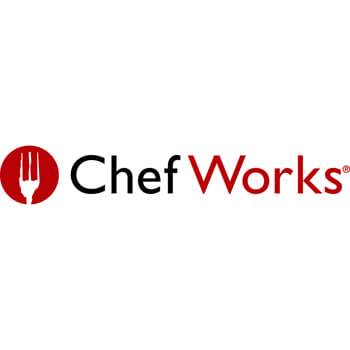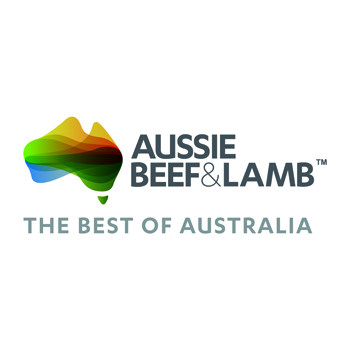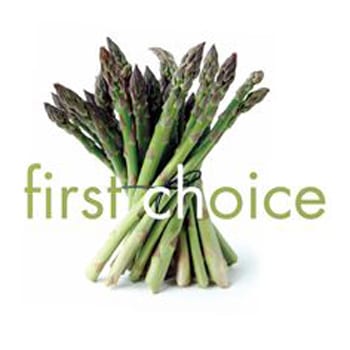From Soil to Soul: Taking Action to Solve the Food Crisis
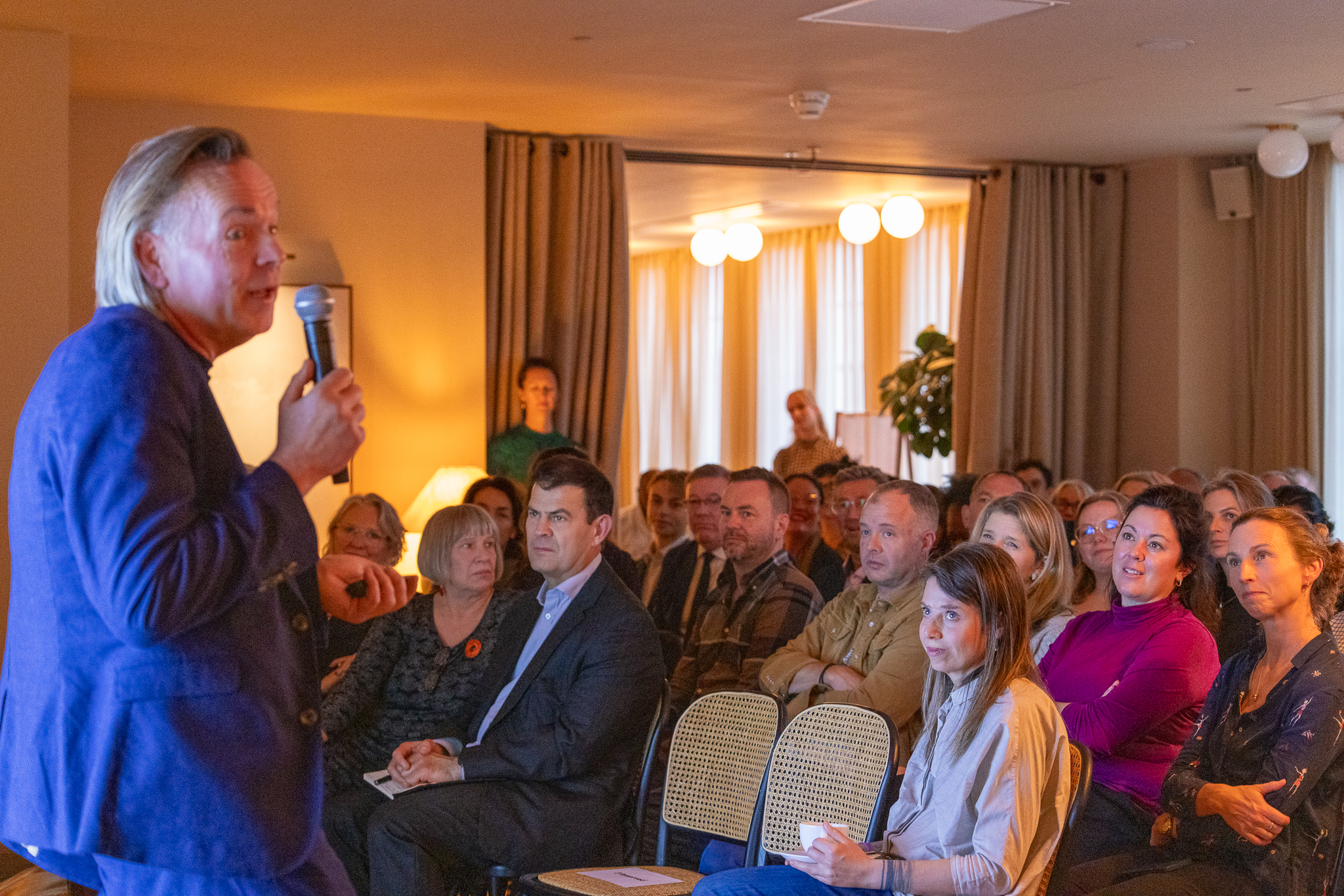 On Tuesday 11th November, at The Roof Gardens Club in Kensington, Ample Foods brought together visionaries, chefs, farmers, academics, and policy advocates to address one of the most urgent issues facing kitchens today: food waste and food justice.
On Tuesday 11th November, at The Roof Gardens Club in Kensington, Ample Foods brought together visionaries, chefs, farmers, academics, and policy advocates to address one of the most urgent issues facing kitchens today: food waste and food justice.
The discussion, beautifully chaired by Sarah Langford, author of Rooted, made one point unmistakably clear: chefs are not just cooks; they are catalysts for change.
Why This Matters for Chefs, Culinary and Foodservice Professionals:
Food waste is a global crisis, but in professional kitchens, it is also a daily challenge. Behind every trim, peel, or leftover sits a system shaped by inequality, climate strain, and supply chains failing both people and planet.
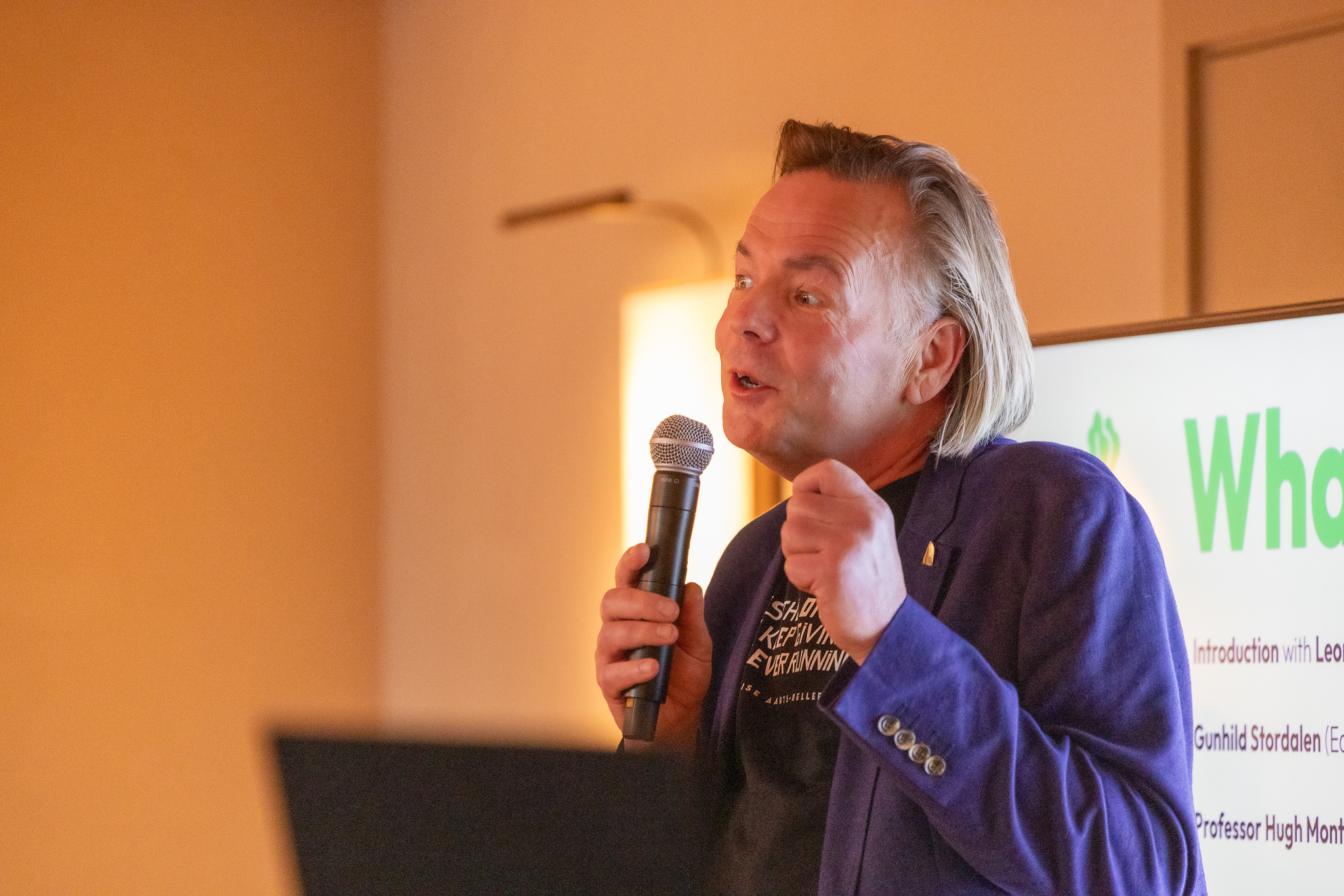 Leon Aarts, a trained chef and Co-founder of Ample Foods, encouraged chefs to think bigger.
Leon Aarts, a trained chef and Co-founder of Ample Foods, encouraged chefs to think bigger.
He said, “Imagine setting a table filled with nourishing food: good for people and planet and ensuring everyone has a place at it.”
 Drawing on experiences from cooking at refugee kitchens in Calais (Autumn 2015, pictured) and the Felix Emergency Kitchen, now serving over 5 million meals, he showed how cooking can restore dignity as much as hunger.
Drawing on experiences from cooking at refugee kitchens in Calais (Autumn 2015, pictured) and the Felix Emergency Kitchen, now serving over 5 million meals, he showed how cooking can restore dignity as much as hunger.
He proudly showed photos of cooking and sharing food with the refugees, which was a lovely touch.
His message resonated:
“When you put a stake in the ground, people start moving toward it.”
For chefs, this means leading by example, cutting waste, transforming surplus, and championing value beyond price.

Food Science Meets Justice
Gunhild Anker Stordalen, MD/PhD of EAT Lancet (pictured), linked planetary science directly to menu choices. This inspirational international leader and co-convenor of the Eat-Lancet Commission is exactly who we need to bring about positive change on a global level. Gunhild has a magical aura and captivated the room in effortlessly explaining how we need to be linking climate, food health
Gunhild imparted a poignant thought to the room:
“We needed longer tables, not higher walls.”
 The Planetary Health Diet, she stressed, is not a rigid prescription but a flexible, justice-focused framework. Western dietary patterns place a disproportionate burden on the planet.
The Planetary Health Diet, she stressed, is not a rigid prescription but a flexible, justice-focused framework. Western dietary patterns place a disproportionate burden on the planet.
Her call to action was clear, also referencing The 10 Communities for Action (pictured):
“Rights come with responsibility, and our food choices are one of our biggest responsibilities.”
Carniel Levy, Founder of The House of Sauce (pictured with Catherine Farinha and Ilona Tomza below), attended the event
“For me, the night reinforced that food justice has to include cultural justice. Chefs from underrepresented communities have a vital role in reshaping the system; our flavours, our stories, and our lived experience belong at the table. If we want longer tables, we need to make sure every community has a voice in what’s being served.”
 For chefs, this means designing more plant-forward, sustainable, culturally relevant, and environmentally conscious menus.
For chefs, this means designing more plant-forward, sustainable, culturally relevant, and environmentally conscious menus.
The Health Crisis
Next up was Professor Hugh Montgomery, who delivered a stark warning:
“Climate change is likely to be my cause of death and will probably be the cause of my son’s too.”
He cited the epidemic of diet-related diseases: obesity, diabetes, cancers, and cardiovascular illnesses, fuelled by a toxic food environment and the rise of fast food delivery platforms and apps. He showed comparison photos of children on a beach in 1970, compared to their considerably chubbier peers on the same beach in the summer of 2025.
He stressed that
“Our economy may not exist in any viable form unless we act on climate change.”
For chefs, healthier menus are not a trend, they should be an intervention and they have the power to dictate the food that they cook and put on the plate.
Takeaways from the Panel
Nicole Pisani, Co-founder of Chefs in Schools, reflected frankly:
“The hardest thing is always change, because change demands courage.”
It was wonderful to hear how mussels are being breaded and served to children in a ‘Try Something New Tuesday’ initiative.
 Ilona Tomza (pictured), Development Chef at Porthaven Care Homes and Winner of NACC Care Chef of the Year loved the ‘Try Something New Tuesday’ initiative so much, that she is going to introduce it into her professional setting
Ilona Tomza (pictured), Development Chef at Porthaven Care Homes and Winner of NACC Care Chef of the Year loved the ‘Try Something New Tuesday’ initiative so much, that she is going to introduce it into her professional setting
“In our care homes, we say that every ingredient matters twice; Once for nourishment and once for dignity. What I learned from this event is that sustainability isn’t separate from care; it is care. If we can turn surplus into flavour, comfort, and nutrition for older adults, then chefs like us can lead one of the most meaningful food revolutions of all.”
Groove Armada’s Andy Cato, Founder of Wildfarmed continued the this theme and communicated the real cost of sourcing:
“The lowest-cost option is already the highest-cost one, how food is grown is the true price.”
Sue Pritchard captured the shared sentiment:
“If we could fix food, we could fix everything.”
And Professor Greta Defeyter OBE made sure the issue stayed grounded in equity:
“We had to include the families who weren’t shopping at Waitrose. Any food system change must serve them first.”
For chefs, the message is simple: Choose regenerative growers, support better farming, and advocate for food that is accessible, seasonal and in abundance, not exclusive.
Ample’s Mission and the Opportunity for Chefs to get involved
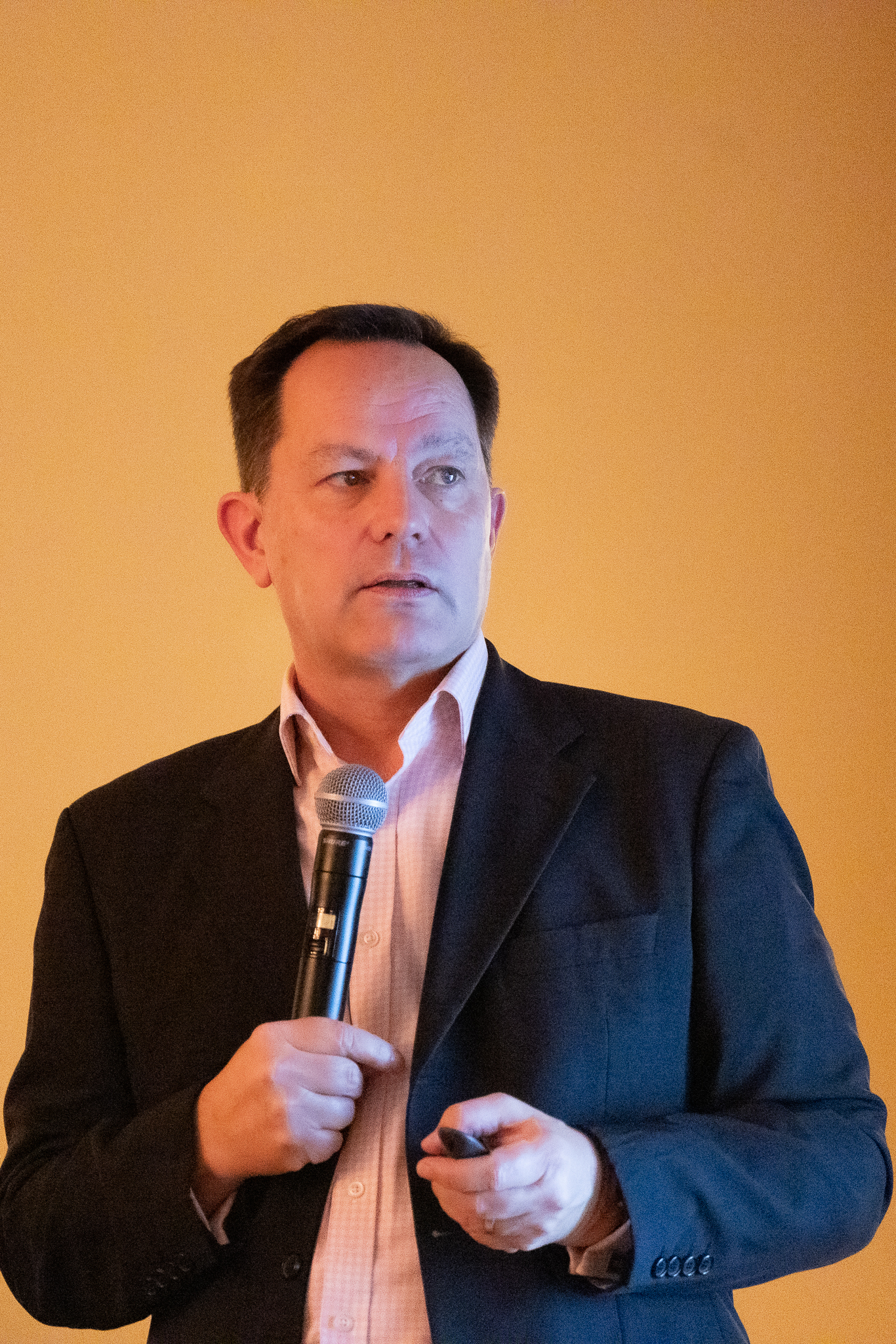 Steve Thomas (pictured) laid out Ample’s vision with clarity:
Steve Thomas (pictured) laid out Ample’s vision with clarity:
“Redistribution by charities alone wasn’t enough, only about 1% of surplus was actually being used. We have built a commercial business with a social purpose.”
Ample aims to rescue 7% of farm gate waste, support fair pay for farmers, and build a circular food system. Their partnership with Oakland International Limited, a B Corp-certified organisation, demonstrated how surplus could be transformed into nutritious meals for schools, hospitals, prisons, and other high-volume sectors.
He added,
“It only takes around 5% of committed activists to turn the corner.”
For chefs, this offers a tangible opportunity to coordinate the entire foodservice value chain and all stakeholders involved in menu planning and purchasing. It is essential to share knowledge and best practices from professional kitchen systems with organisations already leading the way.
Menu for Change
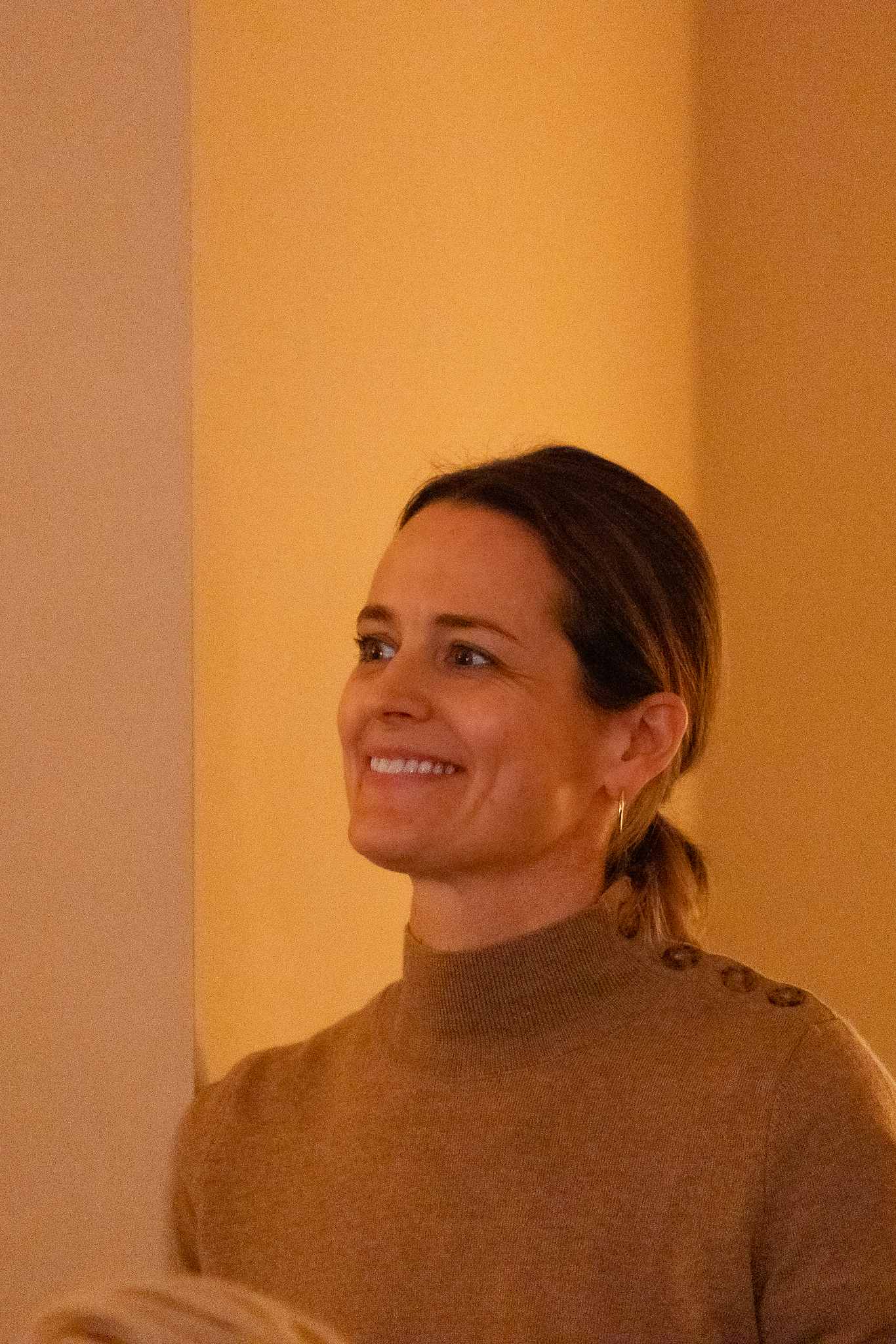 Guests enjoyed dishes including Thai Spiced Pumpkin Soup, Ample Shakshuka, and Ample Ragu Lasagne, all prepared from surplus produce under the leadership of Chef Kate Fortescue (pictured) and the Ample Kitchen team.
Guests enjoyed dishes including Thai Spiced Pumpkin Soup, Ample Shakshuka, and Ample Ragu Lasagne, all prepared from surplus produce under the leadership of Chef Kate Fortescue (pictured) and the Ample Kitchen team.
Kate was previously a Criminal Barrister, then trained as a chef at Leiths School of Food and Wine, swapping courtrooms for the professional kitchen – from frying pan to fire, quite literally! Today, she combines her roles as a chef and nutrition advisor with food writing.
For chefs, this event demonstrates that sustainability is not a constraint, but rather a source of creativity.
The Call to Action
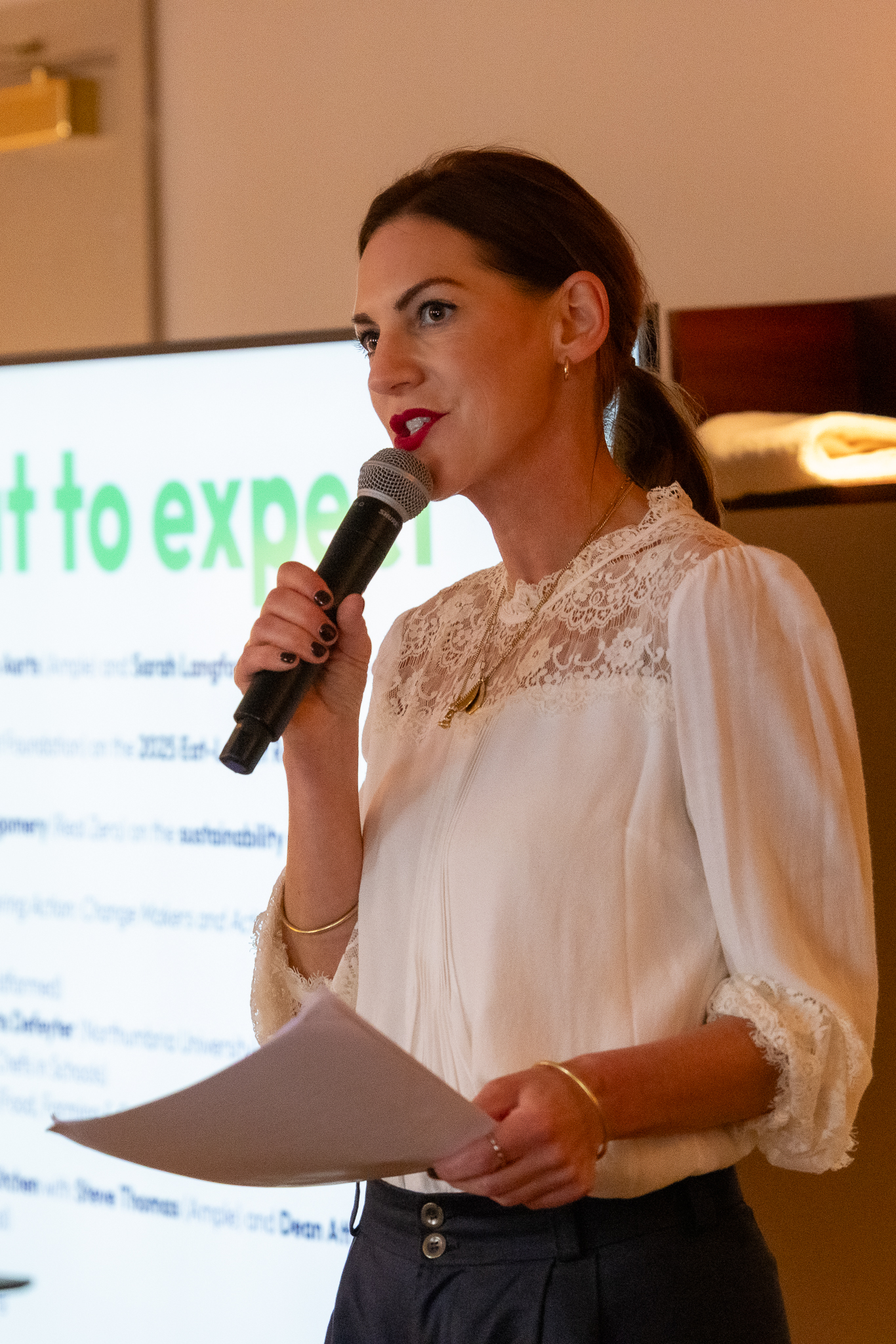 Closing the evening, Sarah Langford (pictured) reminded everyone:
Closing the evening, Sarah Langford (pictured) reminded everyone:
“It could feel overwhelmingly bleak, but when people refused to accept the status quo, ripples grew into waves.”
On Tuesday night, Ample showed what one of those waves looked like and chefs were certainly invited to help shape the tide.
Over to You Chefs!
Chefs, what role will you play in building that global table where everyone has a seat? What changes, big or small, will you take into your next menu, next briefing, next procurement conversation?
For more information on Chef Leon Aart, his life in food and Ample, visit: https://www.leon-aarts.com/leon-s-story-my-life-in-food
Photo & film credit: Carlos Farinha @carlosclickuk
